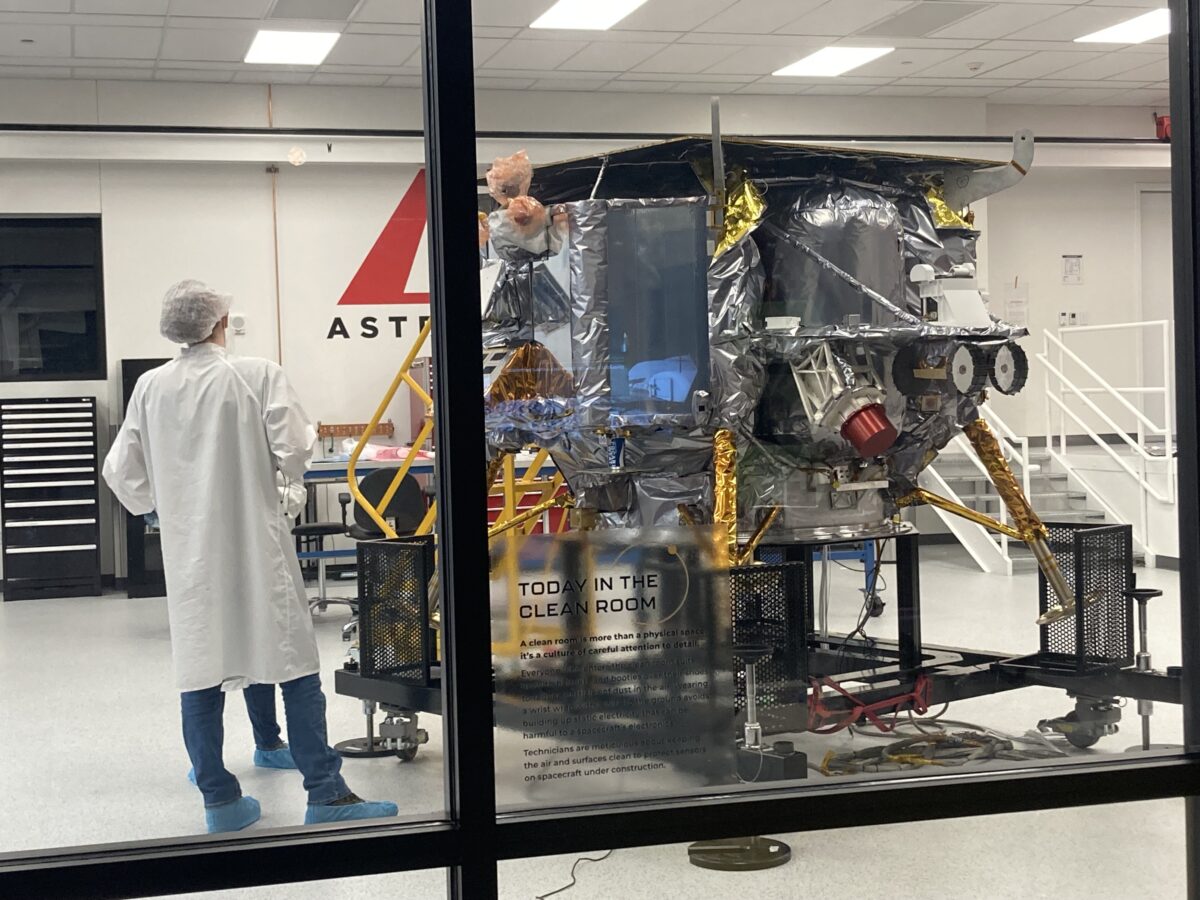Although the project is still in its planning phase, those involved in anchoring the project say once it’s up and running, the innovation district will act as a bridge that connects the North Side, Manchester and Chateau areas through education, space tech development and entertainment.
Justine Kasznica, board chair of anchor org Keystone Space Collaborative, said the district will double down on Pittsburgh’s past contributions to the space race while securing the city’s significance in present space innovation efforts.
“By connecting all facets of space, innovation, academia, the economy, our workforce and the general public, we’re positioning this region to be a leader in the global space ecosystem,” she said at a launch event during the collaborative’s annual conference on Thursday.
Kasznica told Technical.ly the district would also allow the region’s space tech sector to have a physical footprint and presence that could act as a magnet for other space tech companies and the talent coming out of the nearby universities. Not only that but since the field of space tech is rooted in hardware, she said, the district would provide opportunities for mechanics alongside engineers.
“It’s not just engineers and Ph.D. students from top-tier research universities,” Kasznica said. “We actually have a tremendous need for machinists and welders and mechanics and engineers, and folks that really need to know this space and defense innovations have is largely a hardware-driven industry and you actually need physical labor to help get this off the ground.”

At the Keystone Space and Defense Innovation District announcement event. (Photo by Atiya Irvin-Mitchell)
Besides Kasznica, the event’s speakers were Mayor Ed Gainey, US Rep. Summer Lee, Carnegie Science Center Director Jason Brown, Mirasol Capital CEO Steve Winn and Astrobotic CEO John Thornton.
The Texas-based Mirasol Capital is investing in the Keystone project, and the master visioning process will be “funded with support from” the City of Pittsburgh and Allegheny County, a spokesperson confirmed to Technical.ly. Financial details were not shared. In addition, “strategic support and contributions” are coming from the Commonwealth of Pennsylvania, the Pennsylvania Department of Community & Economic Development (DCED), Manchester Citizen Corporation, the Pittsburgh Technology Council and more.
DCED Secretary Rick Siger also announced new funding from the state to support a regional pilot project called the Keystone Space Innovation Challenge. Ben Franklin Technology Development Authority, the department-backed parent org of Pittsburgh’s Innovation Works, will dedicated $200,000 to “support the mission lifecycle (design, development, testing, launch and in-space operations, and return/post-mission reporting) of suborbital and Low Earth Orbit microgravity experiments,” per a statement. This challenge will be launched in 2023 as a partnership between the Keystone Space Collaborative and Innovation Works.
From an elected official’s perspective, Lee said she hopes the district serves as a way to include communities like the North Side and Manchester that have typically been excluded due to racism and classism in what she called an intentional and equitable development.
Growing up, Lee admitted, space technology wasn’t an interest for her. But she now appreciates the educational benefit of Pittsburgh students being exposed to the work of North Side-based space tech company Astrobotic and the exhibits present in the Chateau neighborhood’s Carnegie Science Center.
“They get to be empowered to participate, not just to be acted upon, but to be actors here,” said Lee, who serves on the US House Committee on Science, Space, and Technology. “I think that is so empowering [and] I think that we’re gonna see so many students come alive when they find that their passion is right here at home, but they don’t have to go elsewhere to find it or to hone in, so I think that’s incredible for our constituents.
Over the past decade, redevelopment has been a sore subject within the city, with some fearing it could mean gentrification for their communities. Thornton said the company has included a Manchester community group in its plans to ensure that the new innovation district is a win for the residents as well as the business in the area. Ultimately, the CEO hopes the relationship between the company and community can be one that is mutually beneficial in the long run.
“We want to make sure it’s a win for the community that is already there,” Thornton said. “We want to bring back the fabric of the community that has thrived and adjusted [and] we want to build the businesses back and support family-owned businesses and restaurants.”
Atiya Irvin-Mitchell is a 2022-2024 corps member for Report for America, an initiative of The Groundtruth Project that pairs young journalists with local newsrooms. This position is supported by the Heinz Endowments.Before you go...
Please consider supporting Technical.ly to keep our independent journalism strong. Unlike most business-focused media outlets, we don’t have a paywall. Instead, we count on your personal and organizational support.
Join our growing Slack community
Join 5,000 tech professionals and entrepreneurs in our community Slack today!

The person charged in the UnitedHealthcare CEO shooting had a ton of tech connections

From rejection to innovation: How I built a tool to beat AI hiring algorithms at their own game

Where are the country’s most vibrant tech and startup communities?



